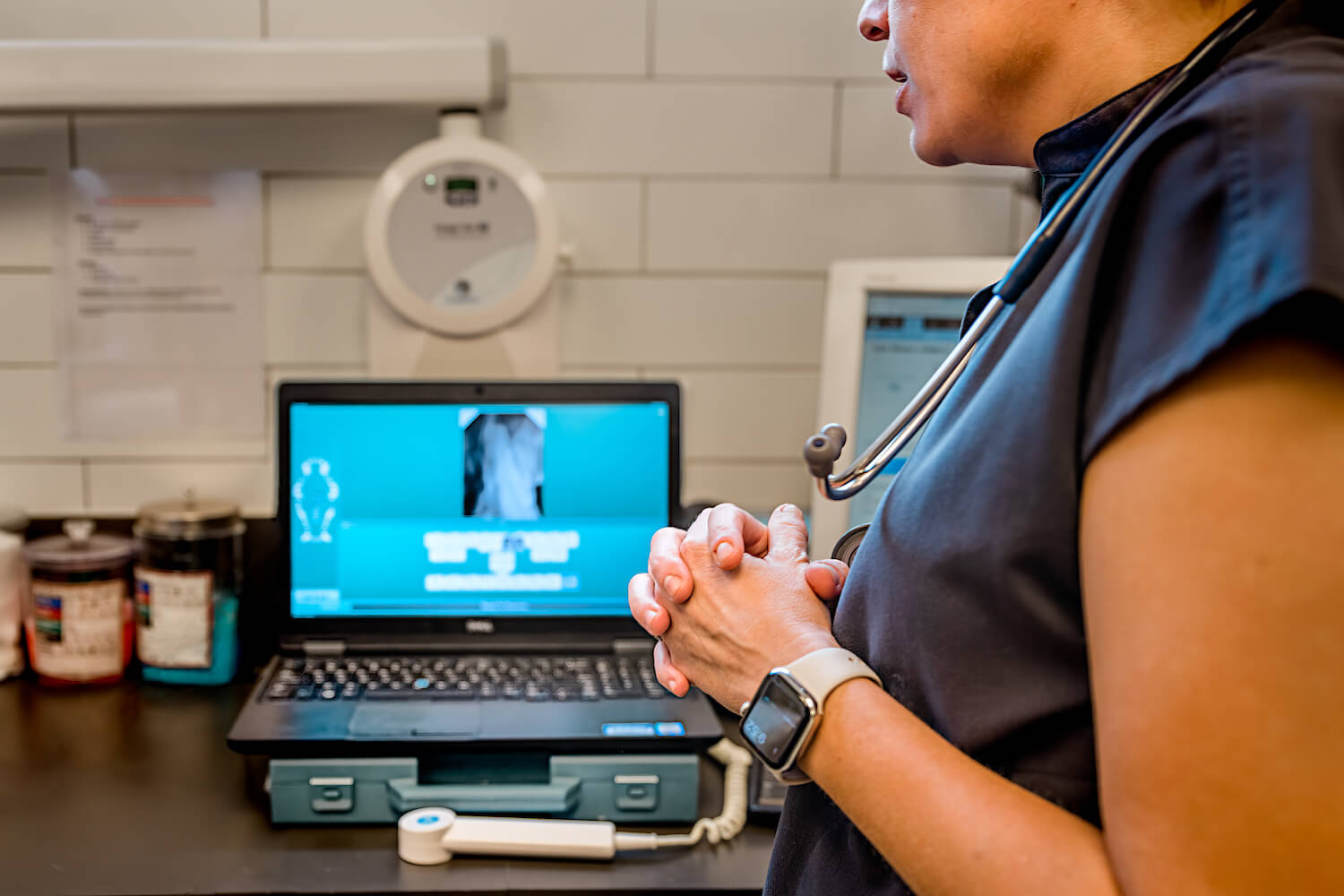Dental Care at Highland Park Animal Hospital

Dental disease, often signified by bad breath, red gums, plaque, and tartar, is a problem for most pets over three years of age. Additionally, dental disease poses a serious health risk with the potential to damage not only your pet’s teeth and gums but his or her internal organs as well.
We offer advanced dental care for dogs and cats using state-of-the-art equipment and digital dental x-rays to make sure that your pet’s teeth are as healthy as possible.
There are two types of dental cleanings:
Non-Anesthetic Dentals (NAD's)
Non-anesthetic dentals (NAD's) are offered at Highland Park Animal Hospital once per month and are performed by a trusted third-party service. They are primarily cosmetic but can remove foul smelling tartar and build up on the outer surface of the tooth. Dogs that are candidates are patient with mouth handling and have mild tartar. The limitations of non-anesthetic dentals include an inability to clean under the gumline or take dental radiographs, which is often where disease is found.
Anesthetic Dentals
Anesthetic dentals are done with general anesthesia. This means that the pet is asleep and is intubated to protect their airway. This allows us to perform a thorough exam and complete any necessary procedures. We are diligent and proactive about mitigating anesthetic risk with a proper pre-anesthetic consult, which includes bloodwork and sometimes imaging to ensure that the procedure goes smoothly. Most dental cleanings are performed on middle age to older dogs, who commonly have other underlying issues. This is something our team is well equipped to handle because dental health care is so important.
Scheduling a Dental Exam
Generally, dental appointments are recommended during an annual exam. If this is not the case, please schedule a consultation to discuss your pet's dental plan. This allows us to address any concerns you have ahead of the procedure. Let us know about coughing, sneezing, vomiting, diarrhea, changes to thirst or urination, loss of appetite or low energy. Discuss with your vet about any medications your pet takes and if they should be given before the dental procedure or not. Lastly, withhold food after midnight the evening before.
What should I expect after my pet's dental procedure?
After the dental cleaning, your pet stays for observation for several hours. Generally, we recommend pick up between 4pm and 6pm. Pets are often sleepy and can behave differently for the first 24 hours after anesthesia. They might even be reluctant to eat if they had extensive dental work done. In this case we recommend canned food or adding water to kibble to soften the food. Pets can have drooling and sometimes have mild bleeding depending on their procedure. Often recovery is 2-5 days.
Do you recommend any dental products for my pet?
In addition to dental cleanings and procedures, we offer and can recommend a wide range of approved dental products to help you keep up the fight against dental disease at home! Check out the Veterinary Oral Health Council's Accepted Products List.
